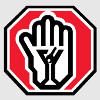 A few months back you commented on drugs and driving and the issues therein. I think you people do a heck of a great job and drug testing I am certain is a growing problem for police officers.
A few months back you commented on drugs and driving and the issues therein. I think you people do a heck of a great job and drug testing I am certain is a growing problem for police officers.
I would like to add some input on this subject too . There are many side effects such as slower reaction times and emotional stress inherent in many “prescription medications” which often the users seem unaware of . Sleeping pills are regularly prescribed to increasing numbers of people as well as many forms of anti-depressants so what a mix and mess you have to deal with!
I have used a few medications over the years and am very aware of side-effects the following day so I curtail driving until the medication is out of my system and I am back to normal . If I take the occasional sleeping aid for instance I can tell there are effects in my body and mind until about 1:00 or 2:00 P.M the next day so. Knowing this I simply do not get behind the wheel.
My advantages are years of experience through awareness in drug / alcohol counselling and also being retired so now I don’t “have” to drive to work each day.
I do wonder though how many others are as alert to this “prescription” danger?
On the same topic I daily observe drivers wandering in their lane, changing lanes without looking or signalling, following too close and aggressive driving. The female to male ratio seems about the same to me . I believe a certain number are likely on anti-depressants or feeling the after effects of some sort of sleeping aid.
A hard job for testing and enforcement no doubt!
Medications do help settle many people down and do lessen their physical and mental effects after a few weeks of regular dosage but I also know many take prescription meds. sporadically, unfortunately.
Would it help if Government spent more money in education and public awareness on this subject?
When you are prescribed drugs, the doctor cautions you about their use. When your prescription is dispensed the pharmacist cautions you again and sticks a warning label to the packaging. When you use the drug, those cautions combined with your experience should be enough for you to decide that you would be impaired by a drug and not operate your vehicle. I don't think that much more is needed here.
Over the counter drugs may be another matter. Even though the warning is printed on the label I wonder how many people take the time to read it beyond the section on the dosage. Again, there should be some self awareness that you are impaired when using the drug. However, there might be a case made for a bit of advertising here.
The Drug Recognition Expert program has been implemented in BC. While the main focus is probably illegal drugs, the same procedures apply to prescription and over the counter drugs. To assist in this, the federal government has made it mandatory to participate in an examination by an expert if you are suspected of being under the influence of drugs while driving.
We expect drivers to be responsible for their actions. Some are, some aren't and for some, no amount of teaching is going to make a difference. They will drive regardless.
- Log in to post comments
- Log in to post comments

How Can They Not Be Aware?